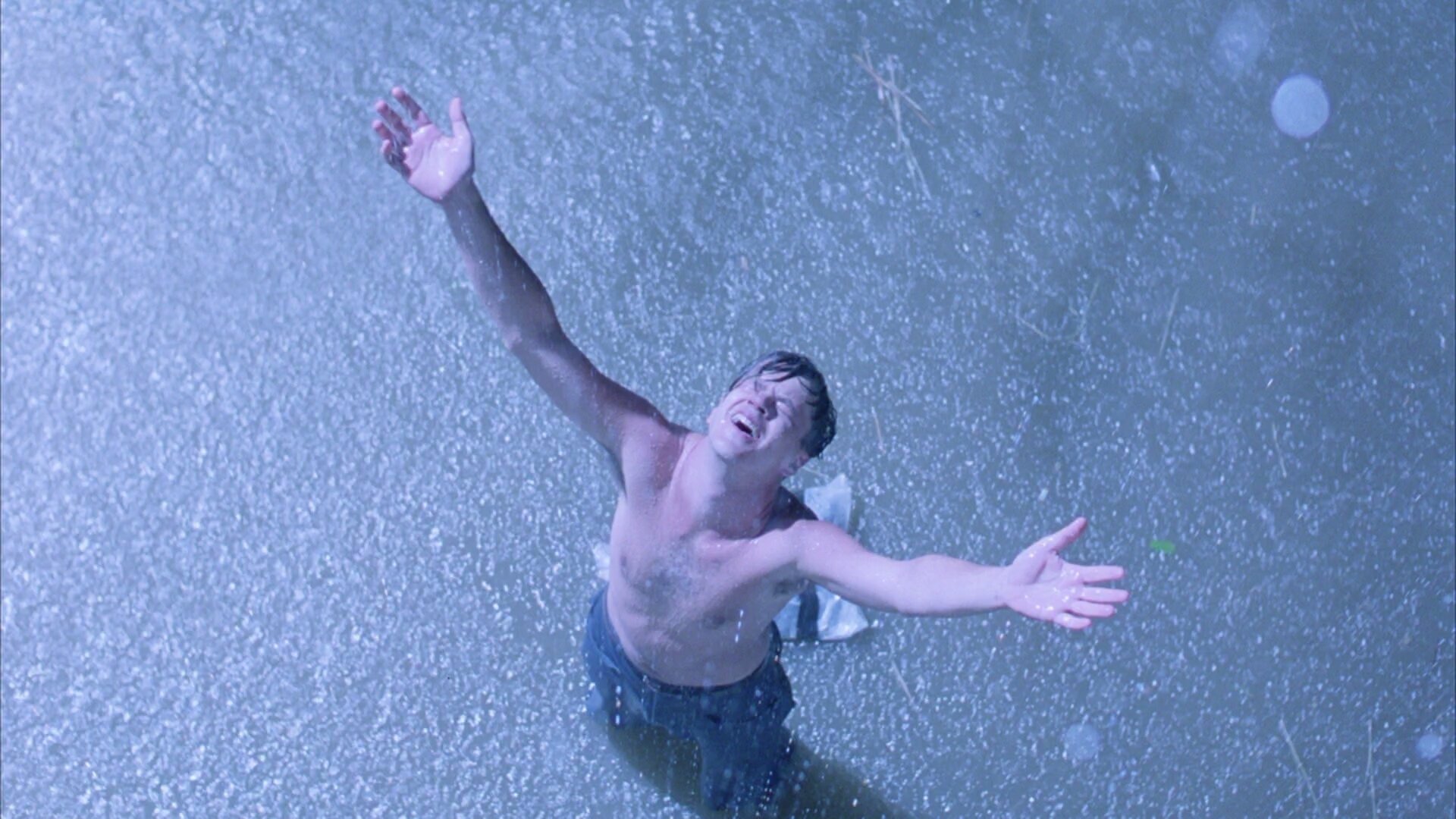I could pick any number of words, or sentences from this entire section of the film. Its a small, but profoundly well crafted bit of dialogue, that expertly moves the story along in time, while keeping the integrity of the themes and values at play, and its gorgeously written. “I just miss my friend” chokes me up just thinking about it. It’s so achingly relatable to anybody who has ever lost a really great friend to time, space, or death, and its delivered by Freeman with devastating poignancy, and the same plainness aforementioned. But it’s “Andy Dufresne, who crawled through a river of shit, and came out clean on the other side” that personifies the ultimate message of this film so precisely. Hope…hope that any of us, maybe even all of us, can make it through the yards and yards of muck, grime, and fecal matter life, society leaves behind. That we can survive years in the dark, dragging ourselves up and out of horrible family trauma, poverty, crushingly inept leadership, lack of upward mobility at work, social inequality, and hatred, and come through it all clean, liberated, and possibly stronger. Hope that we can make it through our own shit, ego, entitlement, self degradation, or depreciation, self pity, over compensation, and analyzation, and on and on. In the film the words urgently calls you back to remind you of everything you’ve seen on screen, and off screen. Of all the inhumanity that Andy has had to endure without aide of a montage, so that as you see Andy now in his car , wind blowing through his hair, the same silly smile on his face as was on it when he scored beer for all the men on the roof detail, (another impossibly well written scene and moment) it reminds you that of the power of his resolve, and that he did it all with his humanity in tact. It reminds me that I can do the same. I shouldn’t have to , but nonetheless I can. It’s about endurance. Not the kind that makes you an inactive spectator in your own life, waiting on your piece of “pie in the sky” as Malcolm X would so often allude to. But the active kind. The kind that allows you to endure while you act. Andy had a plan, and he worked at it, and he adapted, and he endured, and he never gave up hope to cynicism, and pessimism. Yeah.. “Andy Dufesne, who crawled through a river of shit and came out clean on the other side”.
